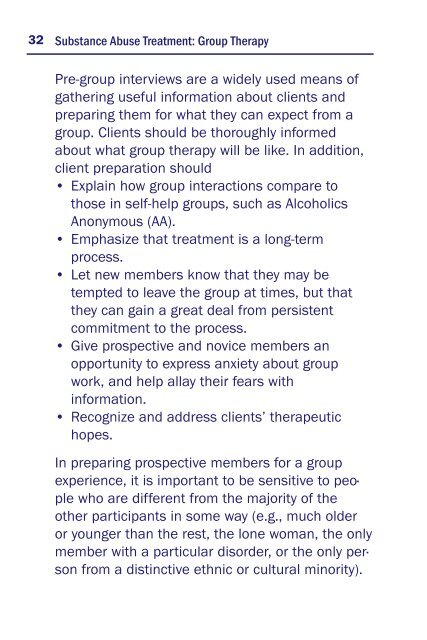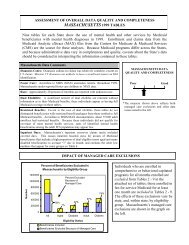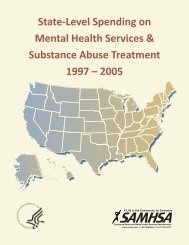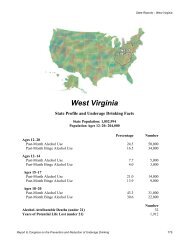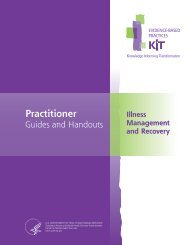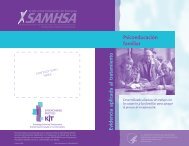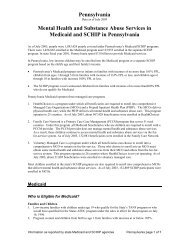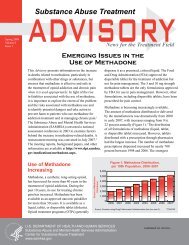Quick Guide for Clinicians - SAMHSA Store - Substance Abuse and ...
Quick Guide for Clinicians - SAMHSA Store - Substance Abuse and ...
Quick Guide for Clinicians - SAMHSA Store - Substance Abuse and ...
You also want an ePaper? Increase the reach of your titles
YUMPU automatically turns print PDFs into web optimized ePapers that Google loves.
32 <strong>Substance</strong> <strong>Abuse</strong> Treatment: Group TherapyPre-group interviews are a widely used means ofgathering useful in<strong>for</strong>mation about clients <strong>and</strong>preparing them <strong>for</strong> what they can expect from agroup. Clients should be thoroughly in<strong>for</strong>medabout what group therapy will be like. In addition,client preparation should• Explain how group interactions compare tothose in self-help groups, such as AlcoholicsAnonymous (AA).• Emphasize that treatment is a long-termprocess.• Let new members know that they may betempted to leave the group at times, but thatthey can gain a great deal from persistentcommitment to the process.• Give prospective <strong>and</strong> novice members anopportunity to express anxiety about groupwork, <strong>and</strong> help allay their fears within<strong>for</strong>mation.• Recognize <strong>and</strong> address clients’ therapeutichopes.In preparing prospective members <strong>for</strong> a groupexperience, it is important to be sensitive to peoplewho are different from the majority of theother participants in some way (e.g., much olderor younger than the rest, the lone woman, the onlymember with a particular disorder, or the only personfrom a distinctive ethnic or cultural minority).


